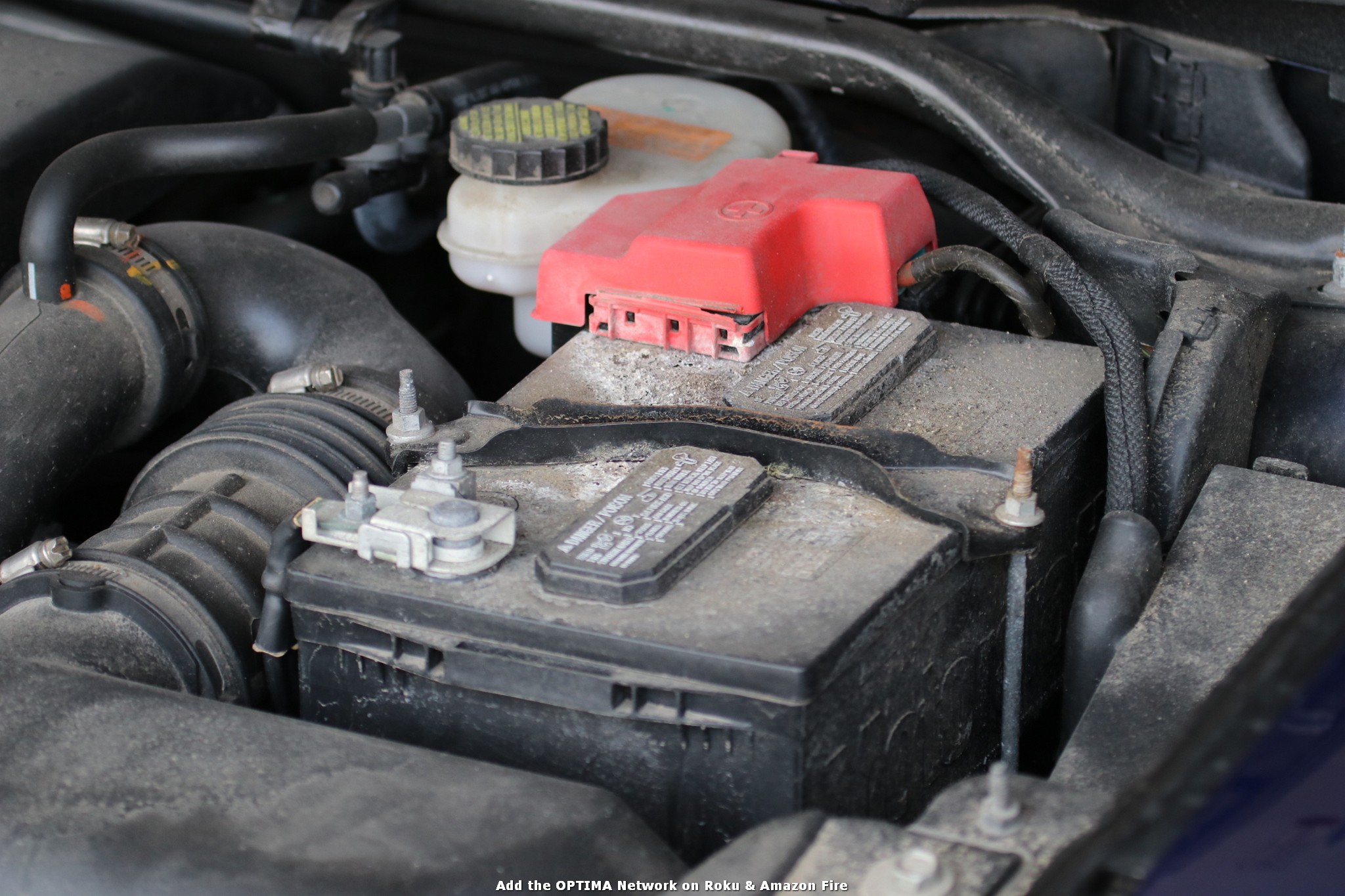Are There Benefits to Replacing a Lead-Acid Car Battery with a Lithium Battery?

Tips & Support
- Sponsor
- OPTIMA Batteries
- Location
- Milwaukee, WI


There is no denying the fact that a lithium car battery of similar cranking power should be significantly lighter than a comparable lead-acid car battery. If you are concerned about the weight of your car or truck, then switching from a lead-acid to lithium car battery can offer a clear benefit in terms of weight reduction. However, the benefits beyond lighter weight become more theoretical for lithium batteries from there. What do we mean by that?
In theory, that same comparable lithium car battery should offer significantly longer cycle life than a lead-acid car battery. However, we've found that doesn't always happen and in some cases, the opposite has been true. We've also seen advertised warranty terms for some lithium batteries that are far longer than a typical lead-acid battery warranty, but those don't always work out either. So what happens?
Right now, if someone wants to start a lithium car battery brand, all they need to do is buy some lithium car batteries off the Internet, create their own labels and begin selling "Bubba's Lithium Batteries" or some other such brand name in Facebook groups, marketplace listings or on eBay, Craigslist or other such sites. Any knowledge of how a lithium battery is manufactured is not a requirement and that's bad news for consumers.
When lithium batteries first came to the market, there was a rush to get the latest, greatest, lightest and most-powerful battery technology into the marketplace. Unfortunately, in their haste to be first, many brands overlooked or were completely unaware of the importance of a quality battery management system, that controls current flow and ensures proper balancing of cells. Now, you'd be hard-pressed to find any lithium battery on the market that doesn't have an integrated BMS (battery management systems) of some kind and you'd be wise to avoid the brands that lack this important safety feature.
There are variations in cell quality and tolerances for keeping those cells balanced, that should be in place in a quality lithium battery, but unless someone has the specific knowledge of how to ensure that is happening and the ability to test and verify it, a lithium battery brand is forced to take a manufacturer at their word, because many lithium battery brands do not manufacture their own batteries. Even if a lithium battery brand does buy batteries from a manufacturer, is there anyone working for a lithium brand, who is an actual engineer with a background specific to electrical engineering? It can be hard for an average consumer to know.
So what can a consumer do to ensure they are purchasing a lithium car battery from a reputable company? We would suggest locating the physical address for any lithium battery brand you are considering and looking it up on Google earth. A reputable lithium battery brand will probably be committed enough to being in the battery business, that they will have a commercial building with a sign on it, identifying their business. (You can see the sign on our manufacturing facility in this video and the sign identifying our corporate headquarters here).
We see a lot of lithium battery brands being operated out of rented mailboxes, residential addresses or side hustles out of other unrelated businesses or a location so new to them, that no sign of their business presence is visible. That lack of commitment and investment in the brand may not instill confidence in consumers, that those batteries will deliver the kind of performance advantages they are expecting and a premium price is promising. It also doesn't give a strong indication that brand will be around long enough to honor their warranty for the full duration of the term they are promising.
You can maximize the theoretical and actual performance benefits of a lithium car battery over a lead-acid car battery by avoiding lithium battery brands of suspect quality and unknown origin.
In theory, that same comparable lithium car battery should offer significantly longer cycle life than a lead-acid car battery. However, we've found that doesn't always happen and in some cases, the opposite has been true. We've also seen advertised warranty terms for some lithium batteries that are far longer than a typical lead-acid battery warranty, but those don't always work out either. So what happens?
Right now, if someone wants to start a lithium car battery brand, all they need to do is buy some lithium car batteries off the Internet, create their own labels and begin selling "Bubba's Lithium Batteries" or some other such brand name in Facebook groups, marketplace listings or on eBay, Craigslist or other such sites. Any knowledge of how a lithium battery is manufactured is not a requirement and that's bad news for consumers.
When lithium batteries first came to the market, there was a rush to get the latest, greatest, lightest and most-powerful battery technology into the marketplace. Unfortunately, in their haste to be first, many brands overlooked or were completely unaware of the importance of a quality battery management system, that controls current flow and ensures proper balancing of cells. Now, you'd be hard-pressed to find any lithium battery on the market that doesn't have an integrated BMS (battery management systems) of some kind and you'd be wise to avoid the brands that lack this important safety feature.
There are variations in cell quality and tolerances for keeping those cells balanced, that should be in place in a quality lithium battery, but unless someone has the specific knowledge of how to ensure that is happening and the ability to test and verify it, a lithium battery brand is forced to take a manufacturer at their word, because many lithium battery brands do not manufacture their own batteries. Even if a lithium battery brand does buy batteries from a manufacturer, is there anyone working for a lithium brand, who is an actual engineer with a background specific to electrical engineering? It can be hard for an average consumer to know.
So what can a consumer do to ensure they are purchasing a lithium car battery from a reputable company? We would suggest locating the physical address for any lithium battery brand you are considering and looking it up on Google earth. A reputable lithium battery brand will probably be committed enough to being in the battery business, that they will have a commercial building with a sign on it, identifying their business. (You can see the sign on our manufacturing facility in this video and the sign identifying our corporate headquarters here).
We see a lot of lithium battery brands being operated out of rented mailboxes, residential addresses or side hustles out of other unrelated businesses or a location so new to them, that no sign of their business presence is visible. That lack of commitment and investment in the brand may not instill confidence in consumers, that those batteries will deliver the kind of performance advantages they are expecting and a premium price is promising. It also doesn't give a strong indication that brand will be around long enough to honor their warranty for the full duration of the term they are promising.
You can maximize the theoretical and actual performance benefits of a lithium car battery over a lead-acid car battery by avoiding lithium battery brands of suspect quality and unknown origin.
